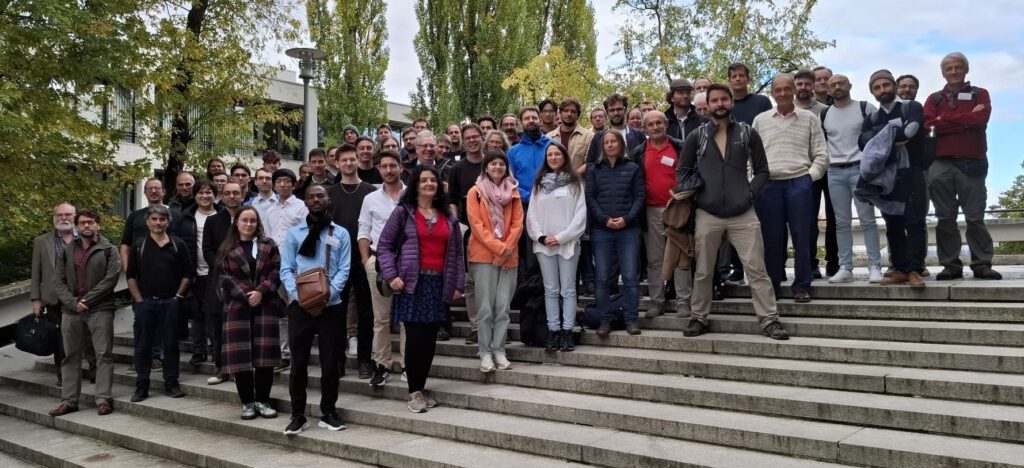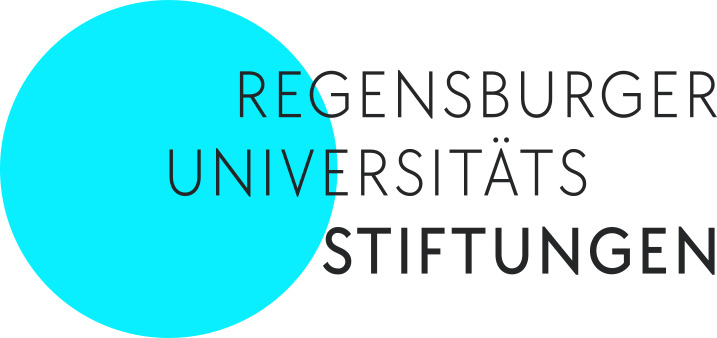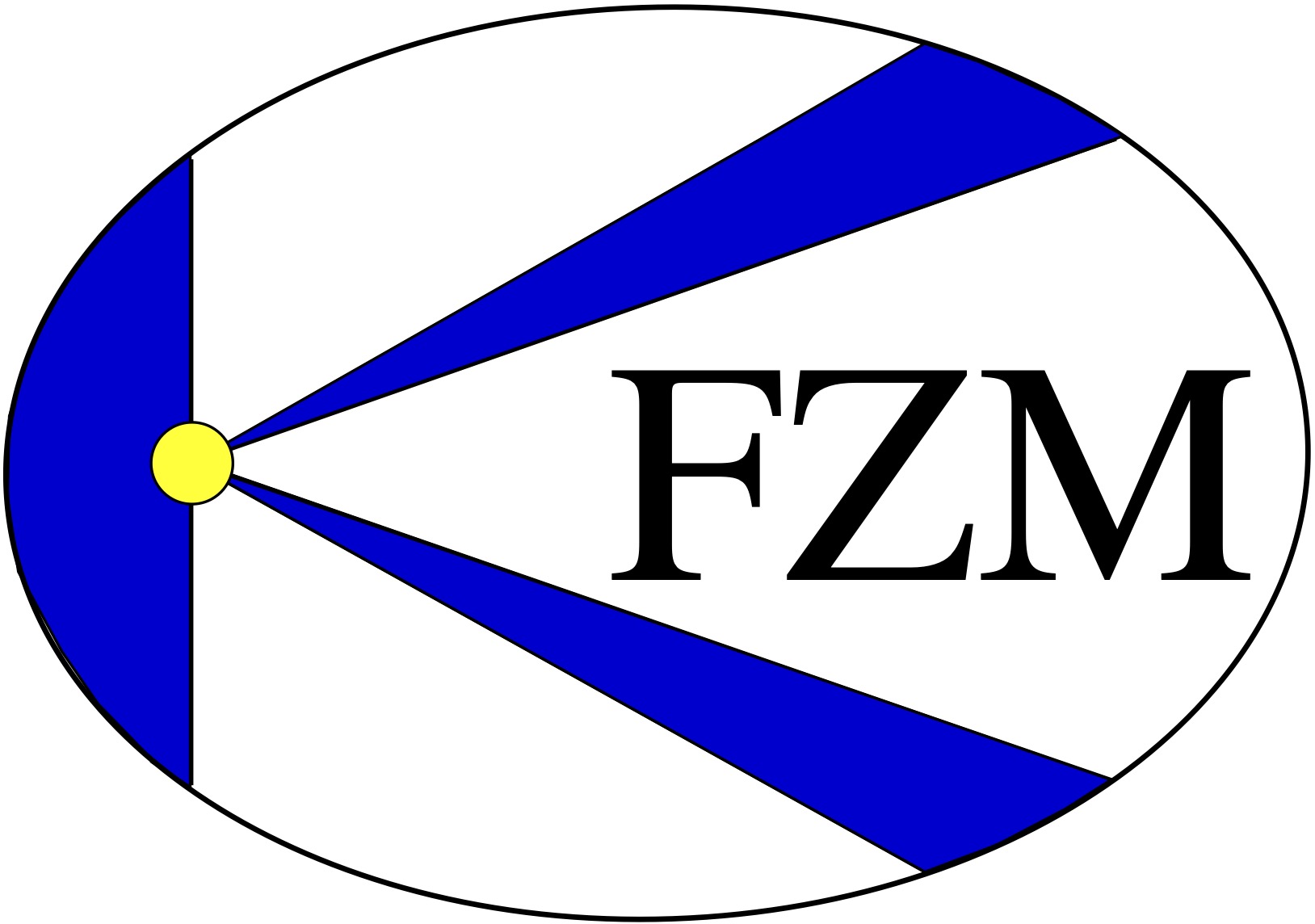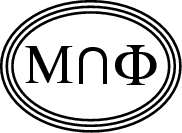Causal Fermion Systems 2025
New Perspectives in Mathematics and Physics
Regensburg, 6-10 October 2025
Aims and Format
In the tradition of the meetings in Blaubeuren (2003 and 2005), Regensburg (2010 and 2014) and Leipzig (2007 and 2018), the conference brings together mathematicians and physicists working in foundations of mathematical physics. This time, the topic will be more focused on mathematical and physical aspects of the Theory of Causal Fermion Systems.
In the past few years, the research has made progress in various directions, both from the mathematical side and concerning the physical applications. The goal of the conference is to present open problems in different physical domains and discuss proposals for addressing them from the perspective of causal fermion systems and other novel approaches. Introductory talks (in the style of a summer school) provide a common basis and set the stage for the later discussions. The core emphasis of the workshop is to foster discussions between different schools of thoughts and to make a connection between fundamental theories and phenomenology.
The topics covered by the conference include the following directions of research:
- Analysis of the causal action principle: Structure of minimizers, flow by minimizing movements, surface layer integrals describing quasi-local and total mass
- Non-smooth Lorentzian and quantum geometry: Singular limits of Lorentzian spacetimes, connection to Lorentzian length spaces and synthetic curvature
- Algebraic structures in causal fermion systems and the standard model: Division algebras, Clifford algebras, octonions
- Baryogenesis and related topics from cosmology
- Quantum field theory and beyond: The quantum state and its dynamics, corrections to standard quantum field theory
- Foundations of quantum theory: The measurement problem, reduction of the wave function, collapse phenomena
- Quantum information: Entanglement entropy, relative entropy, black hole entropy
Other topics can be suggested by the participants and will be taken up in the parallel discussions.

Scientific Organizers
- Catalina Curceanu, INFN Frascati
- Claudio Dappiaggi, Università degli Studi di Pavia
- Felix Finster, Universität Regensburg
- Niky Kamran, McGill University, Montréal
- Antonino Marcianò, Department of Physics, Fudan University & INFN Frascati and Sezione Roma “Tor Vergata”
- Claudio Paganini, TU Chemnitz and Universität Regensburg
- Jürgen Tolksdorf, Universität Leipzig
Invited Speakers and Discussants
- Torsten Asselmeyer-Maluga, DLR Berlin
- Siddhant Das, LMU München
- Dirk Deckert, LMU München
- Lajos Diosi, Eötvös Loránd University Budapest
- Wojciech Dybalski, AMU Poznań
- Michał Eckstein, Uniwersytet Jagielloński, Kraków
- Astrid Eichhorn, Universität Heidelberg
- Hans Thomas Elze, Università di Pisa
- Max Joseph Fahn, Università di Bologna and INFN Bologna
- Shane Farnsworth, Albert-Einstein-Institut, Golm
- Jürg Fröhlich$^*$, ETH Zürich
- Franz Gmeineder, Universität Konstanz
- Niels Gresnigt$^*$, Xi’an Jiaotong-Liverpool University, Suzhou
- Eduardo Guendelman, Ben Gurion University, Be’er Scheva
- Julia Harz$^*$, Johannes Gutenberg Universität Mainz
- José M. Isidro, Universidad Politécnica de Valencia
- Robert Jonsson, Nordita, Stockholm
- Achim Kempf, University of Waterloo
- Michael Kiessling, Rutgers University, New Brunswick
- Margarita Kraus, Johannes Gutenberg Universität Mainz
- Gandalf Lechner, FAU Erlangen
- Renate Loll, Radboud University Nijmegen
- Albert Much, Universität Leipzig
- Olaf Müller, Humboldt-Universität zu Berlin
- Simone Murro, Università di Genova
- Daniele Oriti, Universidad Complutense de Madrid
- Alessandro Pesci, INFN Bologna
- Peter Pickl$^*$, Universität Tübingen
- Kristian Piscicchia$^*$, Enrico Fermi Research Center, Rome
- Paula Reichert, LMU München
- Moritz Reintjes, City University of Hong Kong
- Vincent Rivasseau, Université Paris Saclay
- Mairi Sakellariadou, King’s College London
- Clemens Sämann, Universität Wien
- Miguel Sánchez Caja, Universidad de Granada
- Frederic Schuller, Universiteit Twente
- Tejinder Pal Singh, IUCAA Pune
- Barbara Šoda, Perimeter Institute, Waterloo
- Roland Steinbauer, Universität Wien
- Stefan Suhr, Ruhr-Universität Bochum
- Christoph Stephan, Universität Postdam
- Thomas Thiemann, FAU Erlangen
- Jan-Hendrik Treude, Universität Konstanz
- Rainer Verch, Universität Leipzig
$^*$: Online participation
Participants
- Mohammed Alkhateeb, Université de Namur
- Florian Babisch, Universität Tübingen
- Dogukan Bakircioglu, Université Paris-Saclay, Paris
- Udbhavan Banerjee, Manipal Institute of Technology, Bangalore
- Marvin Becker, Universität Regensburg
- Marvin Buschbeck, TU Chemnitz / TU München
- Marco van den Beld Serrano, Universität Regensburg
- Nicola Luigi Bragazzi, LMU München
- Maximilian Chtchekourov, Universität Leipzig
- Florent Daem, CY Cergy Paris Université
- Carmine De Rosa, Università di Trento
- Elias Döhrer, TU Chemnitz
- Samira Elghaadya, LPHEMC Hassan II University Casablanca
- Max Joseph Fahn, University of Bologna and INFN Bologna
- Patrick Fischer, Universität Regensburg
- Ivana de Freitas Cunha, Universidade Federal do Pará
- Daniel Fröhlich, Universität Paderborn
- Helena García Nebot, Universität Leipzig
- Sari Ghanem, Beijing Institute of Mathematical Sciences and Applications (BIMSA)
- Andreas Grotz, München
- Łukasz Grzelka, Uniwersytet Jagielloński, Kraków
- Bishnu Gupta Teli, IIT Madras
- Florian Hanisch, Universität Potsdam
- Angelo Hartmann, Unicamp, Campinas, Brazil
- Tim Christoph Heib, Forschungszentrum Jülich und Universität des Saarlandes
- Han Jin, Kirchhoff Institut für Physik, Heidelberg
- Vasyl Karpenko, Kyiv
- Sebastian Kindermann, Deggendorf
- Festim Kodra, Mediterranean University of Albania, Tirana
- Christoph Krpoun, Universität Regensburg
- Sreerag Sree Kumar, Universität Leipzig
- Mahendra Mahagaonkar, India
- Jakob Martens, New Jersey
- Tomasz Miller, Uniwersytet Jagielloński, Kraków
- Christoph Minz, SISSA, Trieste
- Ragil Brand Ndongmo Tsafack, University of Yaoundé I, Cameroon
- Pop Nicolina, Politehnica University of Timisoara
- Carlos Peón Nieto, Universidad Politécnica de Madrid
- Fabian Nolte, LMU München
- Julia Osęka, Uniwersytet Jagielloński, Kraków
- Nick Ormrod, Perimeter Institute, Waterloo
- Agustin Patxot, Universidad de Buenos Aires
- Elisabeta Peti, University of Tirana
- Tales Rick Perche, Nordita, Stockholm
- Nicolina Pop, Politehnica University of Timisoara
- Martin Pröbstl, Universität Regensburg
- Martin Rainer, Würburg
- Maik Reddiger, Hochschule Anhalt, Köthen
- Kia Romero Hojjati, University of Southampton
- Sofie Ried, University of Sheffield
- Alejandro Rueda, Universidad Complutense de Madrid
- Amine Rusi El Hassani, Université de Lausanne
- Ivan Rybak, CAPA – Universidad de Zaragoza
- Giulio Sanzeni, Ruhr-Universität Bochum
- Gabriel Schmid, Università di Genova
- Eleftherios Stamatelopoulos, University of Patras
- Vladislav Stefanov, University of Bern
- Paul Sternkopf, TU Chemnitz
- Binh Tran, Leibniz Universität Hannover
- Jan-Hendrik Treude, Universität Konstanz
- Christiaan van de Ven, FAU Erlangen
- Andreas Völklein, Universität Regensburg
- Yale Yauk, Max-Planck-Institut für Quantenoptik, Garching
The conference begins with an introductory school (in the style of a summer school) which introduces the basic notions and concepts. Each topic consists of talks and discussion sessions.
For details see the schedule.
The titles of the talks and the topics of the discussion sessions will be announced in due time. Here is a preliminary list of the topics:
- Topic 1: Spacetime structures: classical and quantum
- Topic 2: Cosmology and particle physics
- Topic 3: Quantum field theory, quantum information and beyond
The afternoon is also the 21st Colloquium “Mathematics and Foundations of Quantum Theory” organized jointly with Dirk Deckert (München), Peter Pickl (Tübingen) and Wojciech Dybalski (Poznan). - Topic 4: Quantum foundations and collapse
- Topic 5: Other approaches
Local Information
How to get to Regensburg
You can get to Regensburg either by train or by plane. The nearest airports are Munich and Nürnberg. From Munich airport there are direct trains to Regensburg. Alternatively, there is a shuttle service (so-called AirportLiner) which brings you right to the hotel and picks you up there. From Nürnberg Airport you need to take the subway U2 to Nürnberg Hauptbahnhof (main station) and then take a train to Regensburg.
How to get to the University
The University is located about 2 kilometers south of the city center. Walking takes about half an hour. There are also buses regularly (for details see the map of bus lines or RVV). You can get tickets via an App. Another good option is to buy a strip ticket (Streifenticket) at vending machines at major bus stops. The strip ticket has ten strips. For each trip you need to stamp two strips inside the bus.
Conference venue and local registration
The conference takes place in the mathematics building (“Mathematik” on the campus plan). The registration is in room M104 (which will also be the room for the coffee breaks and the posters). The lectures will be in room H31. These rooms are all on the ground floor of the math building.
Warning: There will be another math conference at the same time. Therefore, please do not simply follow the crowd but make sure that you register for the right conference.
The parallel discussions will take place in the following rooms:
- Px1 in seminar room M101 (math building ground floor)
- Px2 in seminar room M102 (math building ground floor)
- Px3 in seminar room M103 (math building ground floor)
- Px4 in lecture room H31 (lecture room of the conference)
- Px5 in lecture room H34 (in the physics building; see campus plan)
Lunch
For lunch you can go to the student restaurant (Mensa) on campus, where you can pay with EC or credit card. Alternatively, there are various student cafeterias, where one can get Pizza slices or sandwiches. There is also a Pizzeria on campus. For a quick lunch, there is a small convenience store (Edeka, near the mensa and the forum on the campus plan), where one can buy sandwiches or Leberkäs-Semmeln.
Online participation
Some of the lectures and discussions will be broadcast via Zoom at this link or
Meeting-ID: 655 9793 5368, Passcode: CFS2025
Disclaimer: The above picture of Regensburg is published under the Creative Commons Attribution-Share Alike 3.0 Unported license.
Voting system for discussions
Many of the topics of the discussions will be determined by the participants with an online voting system using SLIDO. In order to participate, please click on this link.
Disclaimer: The above picture of Regensburg is published under the Creative Commons Attribution-Share Alike 3.0 Unported license.




